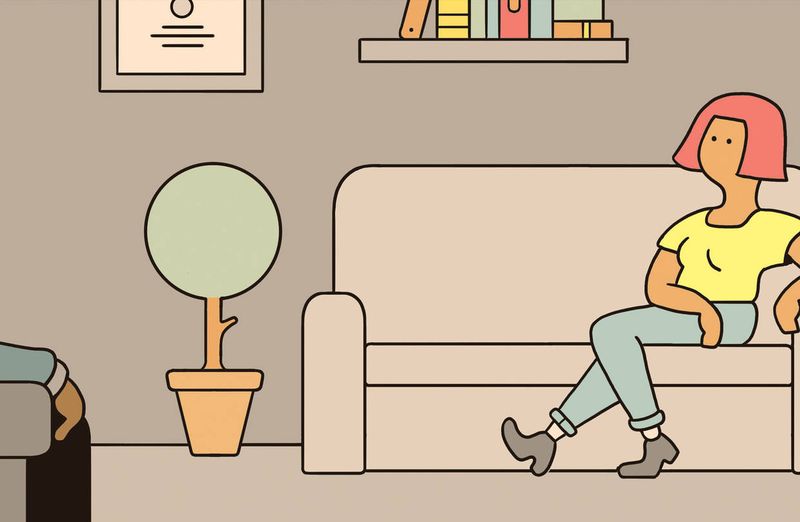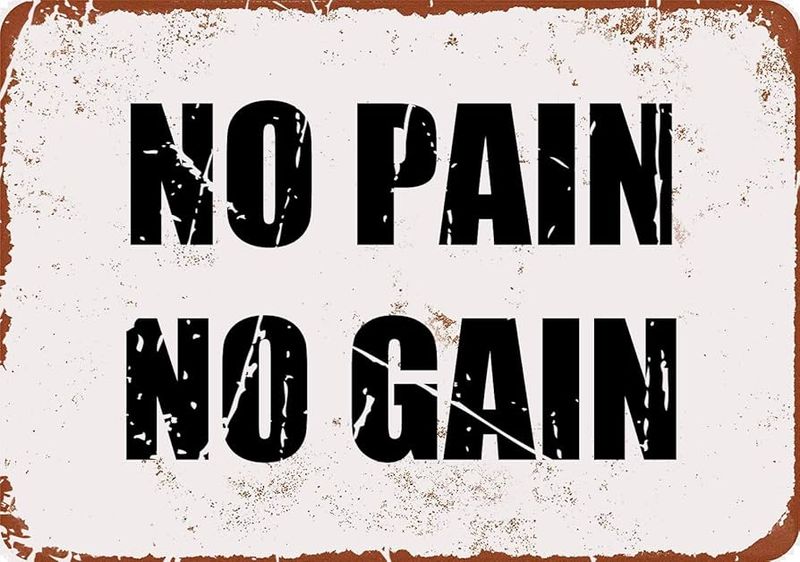Gen X grew up tough. Gritty. Independent. The generation raised by latchkeys, mixtapes, and “figure it out yourself.” They inherited the cynicism of the ‘70s, the hustle of the ‘80s, and the chaos of the ‘90s—and oh, did they learn some lessons.
But let’s be honest: some of those lessons did not age well. What used to sound like wisdom now feels like emotional sabotage, financial delusion, or just plain nonsense in today’s world. So here are 19 Gen X life lessons that may have felt like gospel then—but mean basically nothing now.
1. “Hard work always pays off.”
Ever stayed late at work, thinking you’d finally get noticed? Yeah, me too. Spoiler: the only thing that grew was my under-eye circles. For Gen X, the hustle was sacred—if you just kept grinding, magical rewards would appear.
Fast forward to today, and guess what? Burnout is a badge most of us never wanted. Hard work is noble, but it doesn’t guarantee a promotion, or even basic respect. You could give your all and still get a pink slip.
Now, people want balance, not endless exhaustion. The realization hit hard: loyalty to work doesn’t mean work is loyal to you. The system changed, but the advice didn’t. The old hustle culture feels like being conned into playing a game where the rules keep changing, and nobody’s keeping score except the bosses. Work smarter, not harder—and don’t let anyone guilt you for resting.
2. “Boys will be boys.”
“Boys will be boys”—sound familiar? It was the go-to excuse for every scraped knee, broken toy, or mean-spirited prank. The phrase was a get-out-of-jail card for bad behavior, and somehow, it made ignoring feelings seem okay.
Looking back, it’s wild how often this dismissed real hurt. Instead of learning empathy, boys learned to bottle things up. Girls? We got the lesson that apologies weren’t coming, and we’d just have to deal.
Now, we’re finally calling out how damaging this was. There’s nothing timeless about letting anyone off the hook for cruelty or ignoring emotional needs. The world’s tougher, but also more honest about the fact that feelings are universal. It’s not about policing every move, but about raising kids who understand kindness matters more than outdated stereotypes ever did.
3. “College is the golden ticket.”
Somewhere along the way, college became the supposed magic door to a better life. Gen X parents sold us on the idea that a diploma would open every door. Fast forward, and now we’re drowning in student loan debt, staring at job listings that don’t even ask for degrees.
Sure, higher education matters for some careers, but the golden ticket myth is cracked. So many people with degrees feel stuck, while others build businesses or find success through trade schools, coding bootcamps, or just raw hustle.
It’s not about shaming anyone for going to college—it’s about realizing the promise was oversold. Options matter more now than prestige. The real lesson? Your worth isn’t measured by a piece of paper, and there are a dozen ways to build a future—none guaranteed, but all valid.
4. “Never talk about money.”
Remember how talking about money was basically forbidden? For Gen X, finances were the ultimate taboo—a secret locked tighter than your diary. We grew up thinking that asking about salaries or rent was rude, even shameful.
Turns out, that silence hurt more than it helped. Not knowing what others earn or how they budget keeps everyone in the dark, making it easier for employers to underpay or for debt to spiral. Younger generations are breaking the silence, sharing salary ranges and swapping money-saving hacks.
The payoff? Actual progress. Financial literacy and open conversations help everyone get fairer deals. It’s not about bragging; it’s about making knowledge accessible. Talking about money won’t make you greedy—it makes you informed, empowered, and a lot less likely to get taken for a ride by outdated systems.
5. “Don’t air your dirty laundry.”
“What happens in this house, stays in this house.” That old line was supposed to protect privacy, but it mostly taught us to swallow our pain and keep secrets. Growing up, vulnerability felt risky—like showing cracks in the foundation would make everything fall apart.
Turns out, the opposite is true. Keeping everything bottled up didn’t prevent drama; it just let it fester in silence. Now, we see the value in sharing struggles, seeking help, and breaking generational cycles.
The real dirty secret? Healing comes from honesty, not hush-hush cover-ups. Today, being open about mental health, family struggles, or past mistakes isn’t a weakness—it’s the first step toward feeling seen and supported. Sometimes, airing a little laundry is exactly what you need to feel clean again.
6. “You have to stick it out.”
Commitment used to be everything. We were taught you should stick with marriage, the same job, or any obligation—even if it ate you alive. It was about saving face, not saving yourself.
That loyalty, while admirable, turned into a recipe for misery for a lot of people. Staying just for appearances meant years of unhappiness, lost time, and sometimes serious regret. Today, we know there’s no prize for suffering quietly.
Now, growth is valued over stubborn endurance. Walking away isn’t failure—it’s a power move for your own well-being. Choosing yourself over someone else’s expectations takes courage, not cowardice. The only thing you owe the past is to learn from it, not chain yourself to it.
7. “Just get a ‘safe’ job and stay there.”
The dream was simple: find a steady job, stay for decades, and coast into retirement with a gold watch. But as pensions vanished and layoffs became the norm, that dream faded fast. Gen X learned the hard way—’safe’ doesn’t always mean secure—or satisfying.
Staying put for stability made sense when loyalty was rewarded. Now, corporations cut costs without blinking, and jobs disappear overnight. Chasing security at the expense of joy feels outdated.
Today, people switch careers, start side hustles, and search for meaning as well as money. The risk? Sometimes you win big, sometimes you pivot. But pinning your hopes on stability alone is like betting on a horse that already left the track.
8. “Therapy is for people who can’t handle life.”
For the longest time, therapy was whispered about, if it was mentioned at all. Gen X absorbed the idea that needing help meant you couldn’t hack it. The truth? Avoiding your feelings doesn’t make you strong—it just makes you tired and stuck.
Today, therapy is a flex. It’s not about weakness; it’s about knowing yourself enough to seek support. Healing should never be a secret shame or something reserved for ‘broken’ people.
More people now see therapy as a self-care tool, not a last resort. The biggest shift? Talking openly about mental health means nobody has to carry their baggage alone. Therapy isn’t a punchline—it’s permission to get better.
9. “You’re not supposed to like your job.”
‘Work isn’t supposed to be fun.’ Raise your hand if you heard that at least a hundred times. We were sold on the idea that hating your job was normal, even virtuous. Work was a slog and fulfillment was for dreamers.
Now? Burnout is rampant, and nobody wants to just slog through life for a paycheck. Why should you spend most of your waking hours miserable? The bar for work satisfaction is finally going up.
It’s no longer rebellious to want passion or purpose at work. The new wisdom: You deserve to like what you do, and it’s okay to leave what drains you. Clocking in shouldn’t feel like serving a sentence.
10. “If someone’s mean to you, they probably like you.”
Oh, the mental gymnastics required for this one! For years, ‘teasing’ or being ignored was framed as secret affection. That lesson twisted our sense of what healthy attention looks like.
Looking back, it’s easy to see how this fed a cycle of mixed messages and lowered standards. We learned to accept bad behavior and call it romance, which is as confusing for grown-ups as it was for kids.
It’s liberating to finally realize that kindness isn’t boring—it’s the real deal. Attractiveness isn’t measured by how much drama someone brings to your life. Now, red flags are just that—warnings, not puzzles to decode. Healthy love doesn’t make you anxious.
11. “Suck it up.”
The ‘suck it up’ mantra was everywhere—school, sports, even family meals. It was meant to toughen us up, but really, it just taught us to ignore our own pain and power through everything.
That emotional armor? It gets heavy. Bottling up feelings doesn’t make them disappear—it just makes them harder to deal with later. Stuffing everything down eventually turns into anxiety, resentment, or both.
Today, naming your feelings and asking for support is seen as brave, not weak. Emotional honesty is a skill, not a flaw. Sucking it up doesn’t make you a hero—it just makes you invisible to yourself.
12. “Privacy is everything.”
Privacy is great, but back then it meant secrecy, not just boundaries. Gen X households were expert at hiding drama from neighbors, teachers, and sometimes even each other. The mantra was: keep it together and don’t let anyone see the mess.
But secrets breed isolation. All those closed doors made it harder to ask for help, share real struggles, or just feel connected. Nowadays, people want authenticity, not curated facades.
Privacy still matters, but real connection grows where there’s safety to be honest. Letting people see the real you—not just the polished version—takes courage, but it’s worth it.
13. “Stop crying or I’ll give you something to cry about.”
Was there anything more confusing as a kid? This phrase was supposed to control emotions, but it just made everything scarier. Instead of comfort, you got threats for being human.
Gen X grew up thinking it was safer to hide sadness than to ask for comfort. That lesson lingered, turning vulnerability into a risk instead of a relief. The message was loud: big feelings were too much, too messy, or too inconvenient.
But now, we know better. Crying is a release valve, not a sign of weakness. You don’t punish kids for feeling—you teach them how to handle those feelings. That’s what actually helps.
14. “If it doesn’t hurt, you’re not doing it right.”
No pain, no gain—right? That motto was everywhere, from gym class to relationships. The idea was that struggle was a sign you were doing something worthwhile. Unfortunately, it also glamorized ignoring your limits and pushing through real harm.
Turns out, constant discomfort isn’t a virtue. There’s a difference between healthy effort and self-destruction. You don’t need to suffer to grow—sometimes, pain is just a warning that something’s off.
Now, self-care isn’t just a buzzword—it’s a lifeline. Listening to your body and mind is smart, not lazy. There’s no prize for ignoring your own well-being.
15. “Don’t be a tattletale.”
Calling someone a ‘tattletale’ was the fastest way to shut down honesty. For Gen X, it meant stay quiet, don’t cause trouble, and definitely don’t challenge authority. That lesson stuck, even when silence meant letting real problems grow.
Now, we’re finally flipping that script. Speaking up isn’t troublemaking—it’s courage. Calling out bullying, injustice, or abuse is about protecting people, not betraying anyone.
Safe environments depend on people willing to challenge what’s wrong. Today, whistleblowing is respected, not ridiculed. It’s about time we value truth-tellers, not silence-lovers.
16. “You can sleep when you’re dead.”
The hustle never slept, and neither were we. For Gen X, ‘sleep when you’re dead’ was the anthem of ambition—if you rested, you lost. But living that way? You’ll burn out long before you ever win anything.
Now, we know rest is productive. Exhaustion isn’t a status symbol, and chronic sleep loss can wreck your mood, body, and dreams. The healthiest people protect their sleep like their sanity depends on it—because it does.
It’s not lazy to rest; it’s necessary. The success story is changing, and so is the definition of ‘doing enough.’
17. “Stick to your gender roles.”
Remember the ridiculous chore lists? Girls baked, boys fixed stuff, and everyone else rolled their eyes. Gen X was raised with strict scripts for how to act, love, and even dress. Those rules felt like cement shoes for anyone who didn’t fit in.
But times changed, and so did the script. Now, gender roles are more like optional costumes than mandatory uniforms. People can chase what excites them—careers, hobbies, lives—no matter where they land on the spectrum.
The best part? The freedom to be yourself. Nobody gets to boss you into a box you outgrew years ago. The only rule is: do what makes sense for you.
18. “Respect your elders, no matter what.”
Respect is earned, not automatic. Gen X was taught to never challenge older people, no matter how disrespectful or wrong. The idea was to preserve peace, but mostly it let bad behavior slide.
Today, mutual respect is the goal. Calling out toxic patterns or standing your ground isn’t disrespect—it’s self-respect. Respect isn’t about age; it’s about how you treat people, period.
Healthy families have boundaries, not hierarchies. It’s okay to disagree, push back, or question authority. Sometimes, the bravest thing you can do is speak up—even if it ruffles some feathers at the dinner table.
19. “Don’t rock the boat.”
Keeping the peace was supposed to be noble. Gen X learned not to make waves, question decisions, or stand out too much. The lesson: keep your head down and avoid drawing attention.
Turns out, silence doesn’t create change. The biggest movements come from the loudest voices—people bold enough to call out injustice, pitch wild ideas, or challenge the status quo.
Progress comes from rocking the boat, not clinging to the sides. The world needs more disruptors, not more rule-followers. If no one ever speaks up, nothing ever gets better.




















